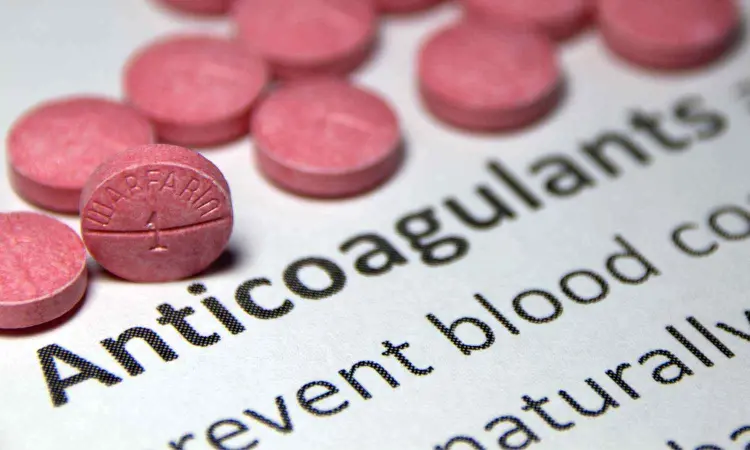- Home
- Medical news & Guidelines
- Anesthesiology
- Cardiology and CTVS
- Critical Care
- Dentistry
- Dermatology
- Diabetes and Endocrinology
- ENT
- Gastroenterology
- Medicine
- Nephrology
- Neurology
- Obstretics-Gynaecology
- Oncology
- Ophthalmology
- Orthopaedics
- Pediatrics-Neonatology
- Psychiatry
- Pulmonology
- Radiology
- Surgery
- Urology
- Laboratory Medicine
- Diet
- Nursing
- Paramedical
- Physiotherapy
- Health news
- Fact Check
- Bone Health Fact Check
- Brain Health Fact Check
- Cancer Related Fact Check
- Child Care Fact Check
- Dental and oral health fact check
- Diabetes and metabolic health fact check
- Diet and Nutrition Fact Check
- Eye and ENT Care Fact Check
- Fitness fact check
- Gut health fact check
- Heart health fact check
- Kidney health fact check
- Medical education fact check
- Men's health fact check
- Respiratory fact check
- Skin and hair care fact check
- Vaccine and Immunization fact check
- Women's health fact check
- AYUSH
- State News
- Andaman and Nicobar Islands
- Andhra Pradesh
- Arunachal Pradesh
- Assam
- Bihar
- Chandigarh
- Chattisgarh
- Dadra and Nagar Haveli
- Daman and Diu
- Delhi
- Goa
- Gujarat
- Haryana
- Himachal Pradesh
- Jammu & Kashmir
- Jharkhand
- Karnataka
- Kerala
- Ladakh
- Lakshadweep
- Madhya Pradesh
- Maharashtra
- Manipur
- Meghalaya
- Mizoram
- Nagaland
- Odisha
- Puducherry
- Punjab
- Rajasthan
- Sikkim
- Tamil Nadu
- Telangana
- Tripura
- Uttar Pradesh
- Uttrakhand
- West Bengal
- Medical Education
- Industry
Uninterrupted DOAC Use During Tooth Extraction Deemed Safe in new study

According to a recent study published in BMC Oral Health, patients taking direct oral anticoagulants (DOACs) can safely undergo tooth extractions without stopping their medications. Only 3% of DOAC users experienced clinically significant bleeding, compared to 11% of patients on warfarin.
The bleeding associated with DOACs was generally mild and self-managed, with no major bleeding events or transfusions required. These findings support the continued, uninterrupted use of DOACs during dental procedures.
No consistent approach to the management of direct oral anticoagulants (DOACs) during and after oral surgery has been established. Thus, DOACs may be unnecessarily discontinued, raising the potential risk of life-threatening thromboembolism.
To address the inconsistency in this approach, our study assessed the risk of bleeding and other complications in patients who continue to use DOACs during and after simple and surgical tooth extractions. Between May 2016 and December 2023, this prospective study recruited patients aged 18 years or older who were receiving a DOAC or warfarin and were in need of simple or surgical extractions of one or more teeth. Local haemostatic agents were being used to control bleeding. Patients were instructed to manage minor postoperative bleeding at home by biting down on gauze soaked in tranexamic acid for at least 30 min. After surgery, all patients were followed for 7 days.
The chi-squared test compared dichotomous variables; the two-sample t-test, continuous variables; logistic regressions, dichotomous outcomes; and linear regressions, continuous outcomes. Results: In all, 354 teeth were extracted from 160 patients receiving DOACs and 56 patients receiving warfarin. The incidence of any type of postoperative bleeding was 27% in patients receiving DOACs and 37% in those receiving warfarin (OR 0.66, 95% CI: 0.28–1.57; p = 0.35). Most patients were able to manage any bleeding at home themselves. Clinically relevant bleeding necessitating prompt evaluation or a secondary surgical intervention by a dentist or healthcare professional occurred in 3% of patients receiving DOACs and 11% of patients receiving warfarin (OR 0.30, 95% CI: 0.08–1.06; p = 0.06). No reports of major bleeding requiring hospitalization or blood transfusion were found. Perioperative bleeding volume was comparable between the two groups. Patients receiving DOACs without interruption during surgery may have a lower risk of bleeding than those on warfarin.
Patients may safely continue to use DOACs during and after simple and surgical extractions. This eliminates the potentially higher risk of serious thromboembolic events that are associated with a pause in anticoagulant therapy.
Reference:
Johansson, K., Becktor, J.P., Naimi-Akbar, A. et al. Continuous use of direct oral anticoagulants during and after simple and surgical tooth extractions: a prospective clinical cohort study. BMC Oral Health 25, 554 (2025). https://doi.org/10.1186/s12903-025-05949-9
Dr. Shravani Dali has completed her BDS from Pravara institute of medical sciences, loni. Following which she extensively worked in the healthcare sector for 2+ years. She has been actively involved in writing blogs in field of health and wellness. Currently she is pursuing her Masters of public health-health administration from Tata institute of social sciences. She can be contacted at editorial@medicaldialogues.in.
Dr Kamal Kant Kohli-MBBS, DTCD- a chest specialist with more than 30 years of practice and a flair for writing clinical articles, Dr Kamal Kant Kohli joined Medical Dialogues as a Chief Editor of Medical News. Besides writing articles, as an editor, he proofreads and verifies all the medical content published on Medical Dialogues including those coming from journals, studies,medical conferences,guidelines etc. Email: drkohli@medicaldialogues.in. Contact no. 011-43720751


